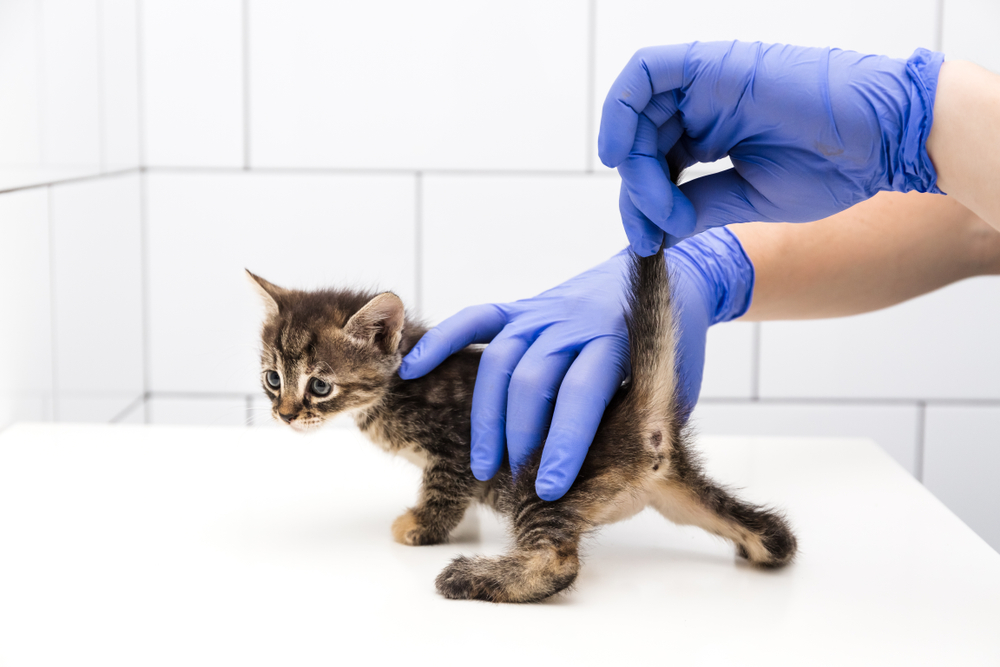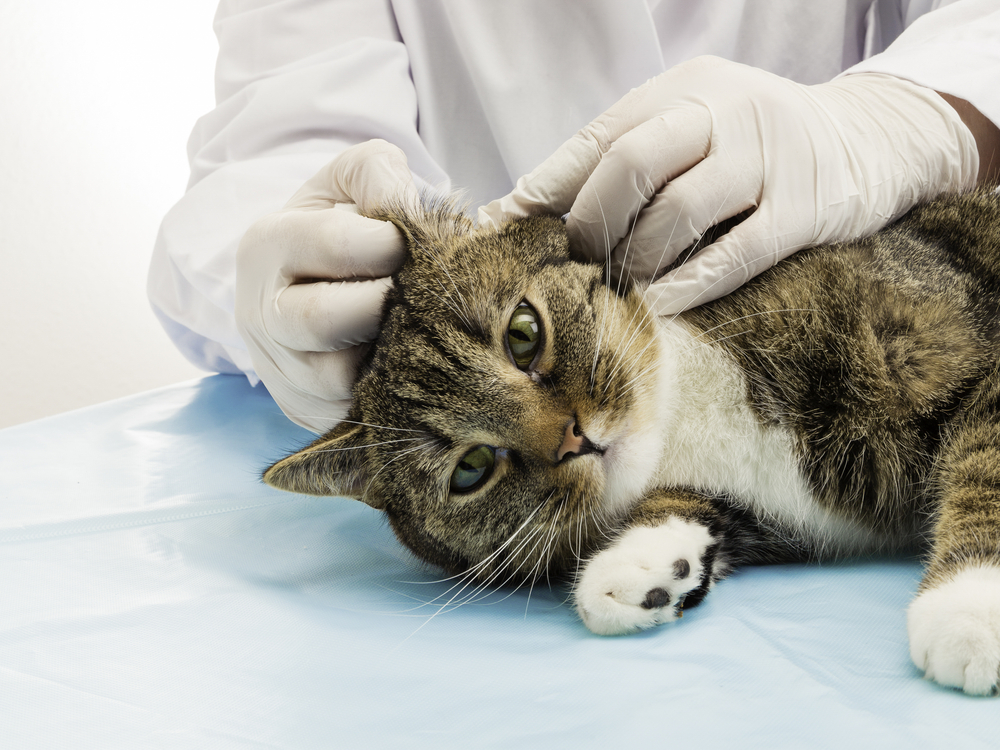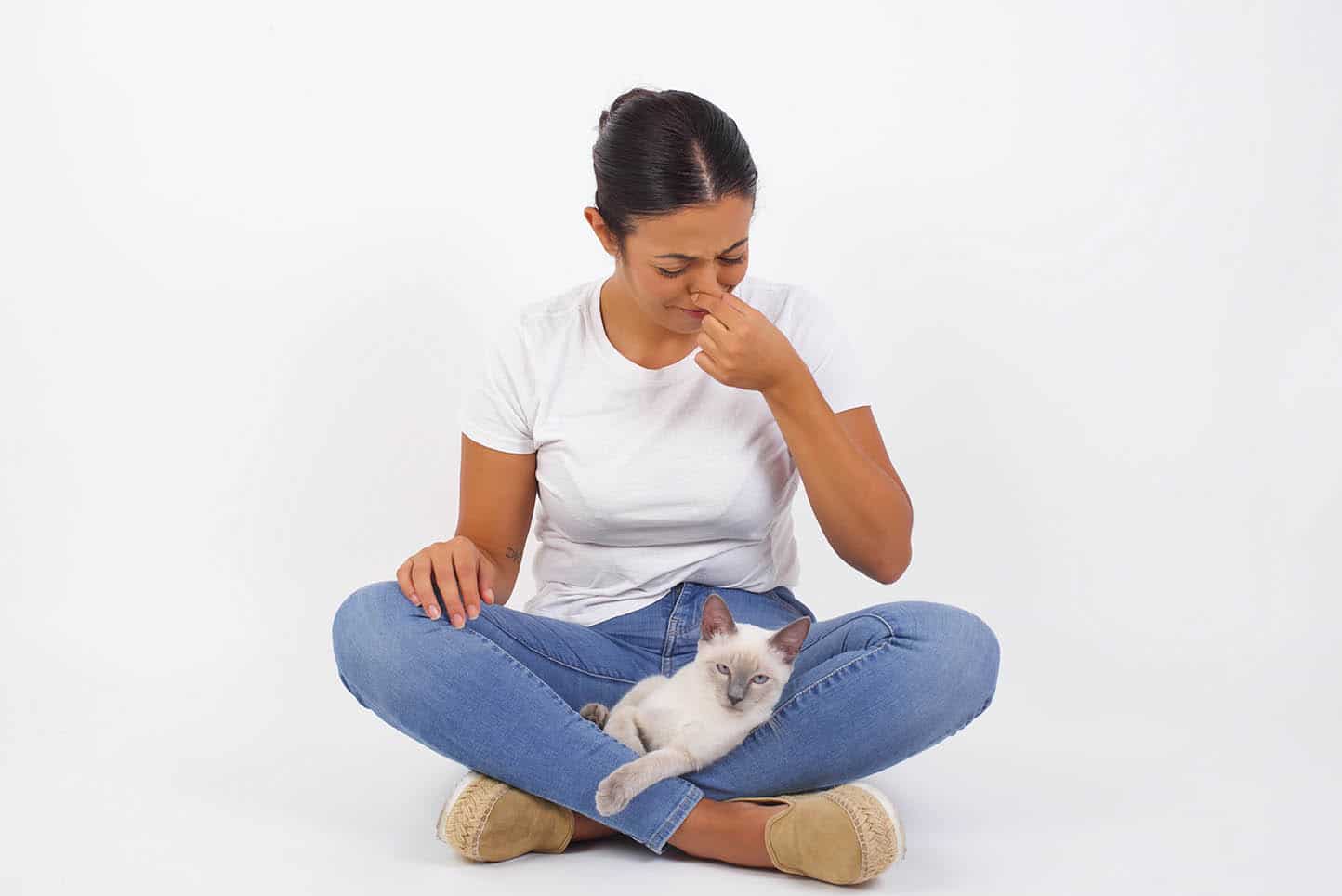The expression that something smells like death can mean different things to different people, but it’s usually a creative and dark way of saying that something smells really bad. Cats are typically “groom first, ask questions later” animals, so if your cat smells like death or has a foul odor, it’s probably pretty weird. It could mean that something is wrong with your pet and needs to be investigated.
Here we’ll break down the potential causes of bad odors based on where they’re coming from and explain what you can do to get rid of cat odor.


5 reasons why cats smell like death
1. Back seat odor
The butt area isn’t usually a place that smells of clean linen and roses, but it’s not usually a place that stinks either. If your cat’s poop smells too strong, it may be that your cat isn’t cleaning itself properly, which is a common problem in long-haired cats. Arthritis or injury can make bending to reach the butt painful. If your cat hasn’t been groomed for more than a few days or if you notice other signs of pain, take her to the vet.
Anal glands can also be the cause of a smelly bottom. If they become blocked or infected, they may leak a fishy smell and produce an oily or colored discharge. Your vet can express the anal glands to remove the odor.
Your cat’s smelly butt could be due to gas. A small amount of gas is normal for digestion, but noticeable excess could be the result of a change in food, constipation, indigestion (often accompanied by diarrhea), or eating something they shouldn’t. If your cat is showing other signs like not eating, vomiting, or diarrhea, take them to the vet.

2. Bad breath
A healthy cat’s mouth will usually have a faint smell of cat food. A cat with dental disease may have a faint (or even strong!) smell of death. Dental disease is very common in cats and can cause bad breath, difficulty eating, brown spots on the teeth, and red gums. If left untreated, it can lead to tooth loss and infections in other parts of the body, such as the heart.
Do your best to prevent and treat dental disease by brushing your cat’s teeth regularly and scheduling regular veterinary checkups and dental cleanings.
3. Ear odor
The mouth isn’t the only place that can give off a death smell; the ears could be the culprit. A cat’s ear canal is dark and warm, so if moisture gets in there, it’s the perfect breeding ground for bacterial or yeast infections. Greasy discharge, head shaking, and ear scratching or rubbing can all contribute to a foul odor. Ear infections will require treatment from your vet, who will often prescribe ear cleaners and medications.
Ear mites are another cause of ear infections in cats, but they don’t usually cause an odor. Instead, you’ll notice a gritty, brown discharge when you look inside your cat’s ears, and your pet will be constantly scratching.

4. Urine odor
Cat urine normally smells bad, but could you imagine it becoming even more foul? That can happen especially if your cat has a urinary tract infection (UTI). Aside from the smell, you may also notice your cat going to the litter box more frequently, peeing only small amounts at a time, crying when using the litter box, or licking their genitals more frequently. UTIs usually require antibiotics and possibly a change in diet, so if you notice any of these signs or if your cat has a particularly foul smell, be sure to take them to the vet.
Urinary tract infections often cause the urine to have a fishy smell, but if your cat’s pee has a sweet smell, it could be a sign of diabetes because excess blood sugar is leaking into the urine. You might also notice your cat’s pee becoming sticky, your cat eating less than usual, or their breath having a sweet smell. Diabetes can be managed with dietary changes and medication, so a visit to the vet is the first step.
If your cat’s urine has a strong ammonia smell, it could be that she’s dehydrated or has kidney problems. Either way, if your cat’s urine seems overly concentrated for more than a few days or if she’s drinking more than usual, take her to the vet.
5. Body odor
Sometimes you can’t pinpoint the exact source of the odor, but sometimes the odor is literally coming from your cat’s entire body. Either way, an all-over body odor could be related to your cat’s skin or fur.
Grooming may be an issue, especially if your cat is uncomfortable moving about as usual while cleaning itself. Look for signs of pain, such as hiding, not eating, or crying when you touch certain spots.
A generalized odor could also be due to a skin problem. Allergies, infections, or parasites can cause your cat’s skin to become red, bumpy, scaly, itchy, and smelly. You may also notice that areas of the skin are unusually moist or oozing, or that your cat is scratching or licking a lot.
Cats have different definitions of good and bad smells than humans do, so they may be tumbling over something that’s harmful to your nose. Dogs tend to cover themselves in smelly stuff, but that’s not always the case with cats. A bath with a mild cat shampoo might be just what your cat needs.
If your cat’s skin or coat looks different than it used to, especially if it’s very itchy, has a rash, or has an odor, take it to the vet, who can identify the cause of the odor and other signs and treat your pet accordingly.




What to do if your cat smells like death
Cats are normally good at keeping themselves clean, so a sudden change in smell requires further investigation. Pay attention to what’s causing the smell and other signs of a problem. If you notice any serious symptoms like vomiting, loss of appetite, diarrhea, frequent urination or no bowel movements, you should see a vet as soon as possible. If not, you can wait a few days to see if it improves. If your cat still has a bad smell, consider taking it to the vet even if there are no other signs.


Conclusion
The reason your cat smells could be something as simple as needing a bath or being gassy from a new diet. The causes can range from common issues like ear infections, dental disease, and urinary tract infections to more serious issues like back injuries and kidney disease. If you’re concerned about your cat’s odor or any other issues, take them to the vet so they can fix the odor and get them feeling better quickly.
Featured image credit: Stanislaw Mikulski, Shutterstock




